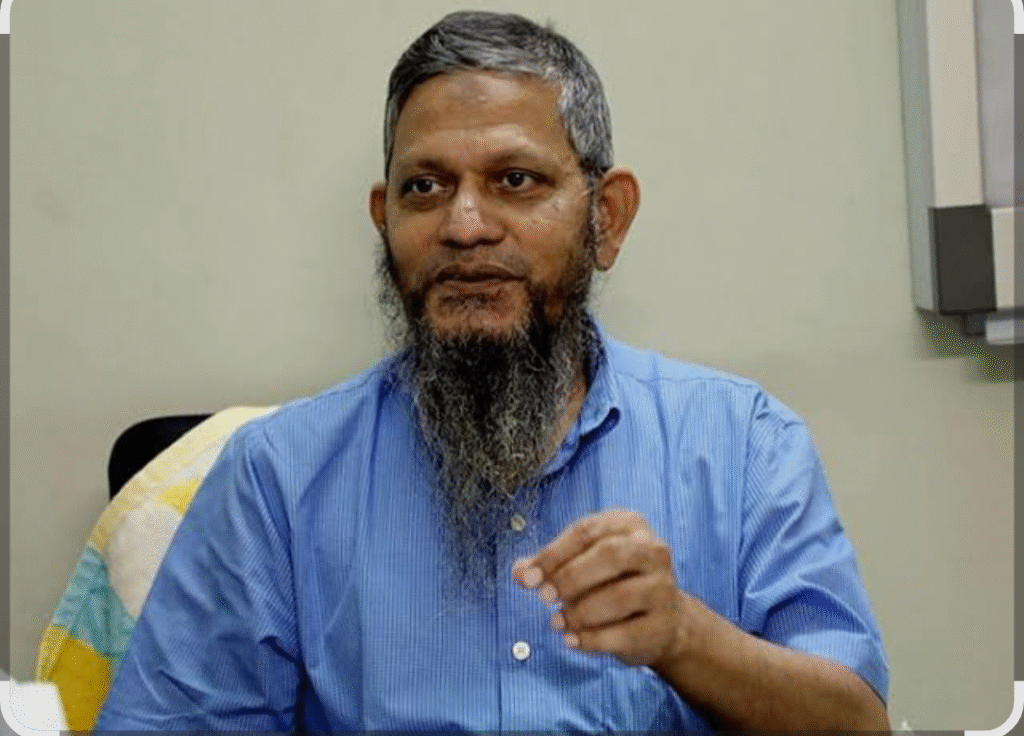Dr Kamrul Makes History with 1,800 Free Kidney Transplants
In Bangladesh’s healthcare landscape, one name now resonates beyond hospitals and medical journals: Dr Kamrul Islam. With the milestone of performing 1,800 kidney transplants, many of them at minimal or no cost to the patients, Dr Kamrul is rewriting what compassionate and accessible medical care can look like in a developing country. His story is not only inspiring for Bangladesh, but carries strong lessons for global health equity, innovation in transplant surgery and the possibilities of low-cost high-quality care.
From Humble Beginnings to Medical Pioneer
Born in Pabna’s Paksey region, Dr Kamrul grew up in a household marked by sacrifice: his father, Aminul Islam, a staff member at the Paksey Sugarcrop Research Institute, lost his life during Bangladesh’s Liberation War in 1971. That early loss instilled in Kamrul a drive to serve others. He excelled academically and went on to attend Dhaka Medical College, followed by FCPS (Surgery), MS in Urology, and FRCS from Edinburgh.
In 1993, he joined the national health service and later became Assistant Professor at the National Institute of Kidney Diseases & Urology (NIKDU). His first successful kidney transplant came in 2007 — marking the start of a remarkable surgical career.
Establishing a New Model of Care
After his government service, Dr Kamrul decided that affordability and access for patients must come first. In 2014 he founded the Center for Kidney Diseases & Urology Hospital (CKDU) in Shyamoli, Dhaka — focusing on kidney transplants and affordable treatments for the middle- and lower-income segments.
At CKDU, the average cost of a transplant has been about Tk 2.1 lakh (≈ USD 2,000–2,500) including donor and follow-up care — an enormous saving compared to private hospitals in Bangladesh or abroad. Dr Kamrul has also waived his surgeon’s fee, and his hospital offers free follow-up tests and care for months after surgery.
The 1,800-Transplant Milestone
While earlier reports recorded over 1,000 transplants by Dr Kamrul and team, recent sources suggest the tally has climbed even higher — with many emphasising 1,800 kidney transplants including those provided free or subsidised for the neediest. (Though official numbers vary, his institution is widely credited with performing the highest number of transplants in Bangladesh.)
Achieving such volume, while maintaining high success rates (reported 95-96 %) in a resource-constrained environment is extraordinary. According to one article, during the COVID-19 pandemic when many hospitals suspended operations, Dr Kamrul’s team still conducted around 250 transplants.
Why This Matters Locally and Globally
For Bangladesh, a country grappling with increasing incidence of chronic kidney disease (CKD) due to diabetes, hypertension, and environmental factors, the model pioneered by Dr Kamrul offers hope. Transplantation remains the most effective treatment for end-stage renal disease, yet high cost and lack of infrastructure make it inaccessible for many.
Globally, his work resonates with themes of health equity, low-cost high-quality care, and innovation in transplant surgery. Many developing countries struggle with affordability even for major procedures — Dr Kamrul’s model shows how dedication, scale and smart cost-management can make a difference.
Key Elements of His Model
Affordability – By limiting costs to essential inputs and eliminating surgeon fees, transplants that cost upwards of USD 10,000–20,000 elsewhere become achievable for patients in Bangladesh.
Quality & Follow-up – The hospital boasts a ~96% success rate and provides free post-operative care, which is critical in transplant outcomes.
Volume & Access – Doing large numbers allows economies of scale, faster learning curves, and more patients served.
Ethics & Vision – Dr Kamrul’s mission is clear: reach the disadvantaged. “I made this hospital for the poor and middle class,” he’s been quoted saying.
Challenges and Sustainability
Despite the success, challenges remain. Kidney transplantation requires a steady supply of donor organs, rigorous infection control, and long-term immunosuppression support. Institutional funding for free or subsidised care must be sustainable. As Dr Kamrul recently noted, the hospital may not afford luxurious facilities but maintains the highest standards of treatment.
In the global context, scaling this model will require governmental support, public awareness (especially about organ donation), and policy frameworks that ensure ethical conduct. Even in Bangladesh, many patients cannot access living-donor transplants due to costs or donor availability.
A Personal and Inspiring Journey
Dr Kamrul’s story is not just about numbers; it’s deeply personal. He gave up the idea of buying a personal car and instead invested in a dialysis machine when founding CKDU. His humility and empathy resonate with patients. One patient noted: “This doctor does not end his responsibility by the transplant; he stays with you for life.”
What the Future Holds
With the 1,800-transplant mark achieved (and counting), Dr Kamrul and his team have set their sights on further innovation: improving long-term survival, enhancing laboratory support, increasing donor awareness and reducing cost further.
Internationally, transplant collaborators and health-policy researchers are watching this model closely. The opportunity for cross-country learning is significant — how to deliver complex surgical care in lower-resource settings without compromising outcomes.
Conclusion
In an era when healthcare access remains unequal globally, Dr Kamrul Islam stands out as a beacon of hope. His achievement of approximately 1,800 kidney transplants, many of them free, underscores what is possible when compassion, skill and vision converge. For Bangladesh, he is a national hero in medicine; globally, his model offers insights into universal issues of cost, access and quality in surgical care.
His work reminds us: true innovation is not only about technology, but about making it accessible. Dr Kamrul’s journey from the son of a martyr to pioneer surgeon illustrates how medicine can serve not just the affluent, but the entire society.
